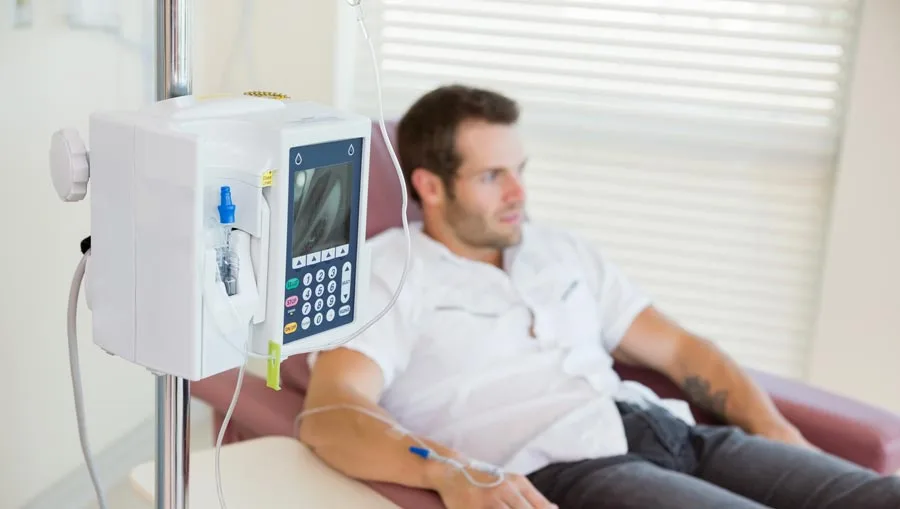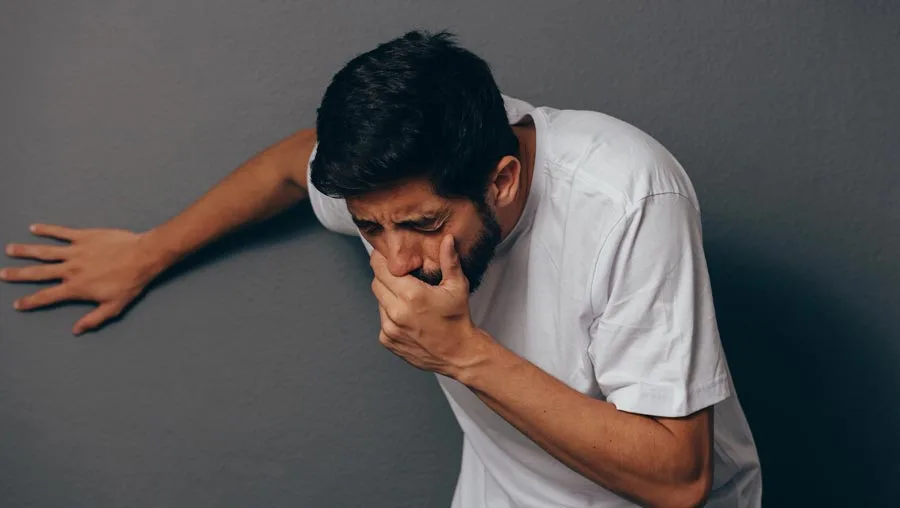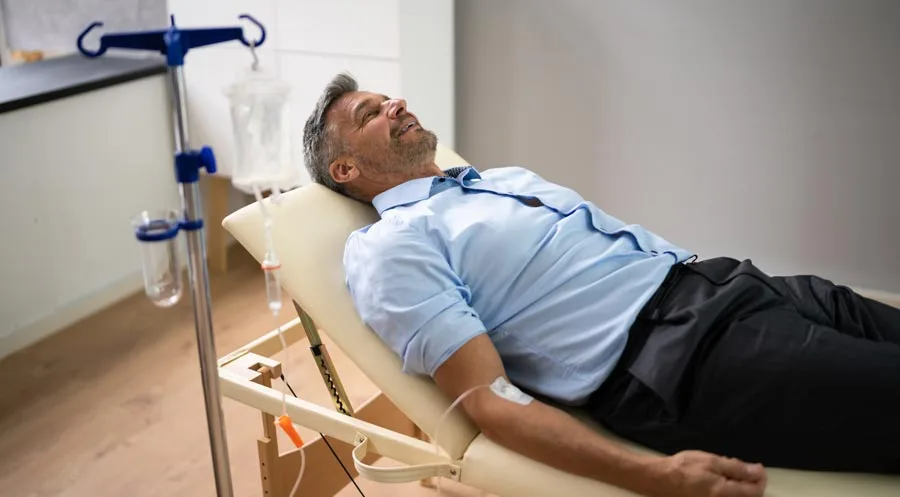When Do Inpatient or Outpatient Programs Form Better Options than Ketamine Therapy?
Ketamine is both a street drug and a treatment for various medical conditions. It belongs to a drug class called dissociative anesthetics. When used in a medical setting and provided in controlled doses, ketamine can help treat depressive symptoms, chronic pain, and other physical and mental health conditions.
While ketamine has a place in addressing concerns like treatment-resistant depression, not everyone will respond to it the same way. In some cases, your medical history and other factors might even make it dangerous to include ketamine therapy as part of your treatment plan.
Often, individuals consider ketamine treatment when other treatments have failed. If this sounds like you, but you are not a good candidate for ketamine therapy, there are other options. It is entirely possible to overcome concerns like severe, previously untreatable depression symptoms through means other than ketamine treatments.
The question is, how do you know if ketamine treatment isn’t right for you? Who is not a good candidate for ketamine therapy, and what are the alternatives?
Let’s talk about who is not a good candidate for ketamine therapy, the potential contradictions and risks of ketamine treatment, and more effective treatment options (may of which are offered at South Shores Detox and Recovery) to pursue if you are not an ideal candidate for ketamine therapy.
Who is Not a Good Candidate for Ketamine Therapy? 5 Common Risk Categories

Ketamine therapy can be administered via ketamine infusion or nasal spray. Like all medications, ketamine poses unique risks. Medical providers should always review all potential contradictions before they provide ketamine therapy.
If you experience one or more of the following concerns, treatment options other than ketamine are likely a better fit for you.
1) Individuals With Some Physical Health Conditions (e.g., high blood pressure)
Your medical history or current state of health and well-being can make ketamine therapy unfavorable in some cases. Certain medical conditions can make undergoing ketamine therapy dangerous. If you experience one of the following medical conditions, an alternative effective treatment is likely more favorable.
Uncontrolled High Blood Pressure
Taking ketamine temporarily increases blood pressure, so individuals with uncontrolled high blood pressure are not suitable candidates for ketamine infusions or sprays.
Heart Problems or Cardiovascular Disease
Ketamine increases your heart rate, blood pressure, and general cardiac output. In other words, it makes your heart work harder. People with unstable heart disease (e.g., Congestive heart failure, coronary artery disease, and other cardiac problems) should not use ketamine to avoid putting too much stress on their heart.
Uncontrolled Thyroid Disease
Individuals with uncontrolled thyroid disease, especially hyperthyroidism, may experience effects such as increased heart rate already. Since, once again, ketamine is known to increase blood pressure and heart rate, it is not generally an ideal treatment option for people with an unmanaged thyroid condition that leads to these symptoms.
Liver or kidney disease
People with liver or kidney problems might not be able to process ketamine properly, leading to a greater risk of possible complications such as interstitial cystitis and bladder issues.
Other Medical Conditions
Other people who are not suitable candidates for ketamine infusion therapy or nasal spray include but aren’t limited to those with active internal bleeding or who are undergoing chemotherapy. Your healthcare provider should go over your full health history and potential risks before approving ketamine therapy or any other treatment.
2) People With Substance Use Disorders
While ketamine is sometimes used to address addiction, it is not suitable for people with active substance use disorders or people who are currently using substances. Ketamine therapy can lead to adverse reactions, such as slowed breathing. Paired with alcohol or another drug, the risks associated with these adverse effects can increase substantially, and there is a higher risk of overdose.
It is also worth noting that ketamine can be abused when treating CPTSD or PTSD, or other conditions such as depression, which can make ketamine infusion therapy or nasal spray less favorable for people with substance use disorders. Ketamine is a Schedule III controlled substance. As a street drug, ketamine is known by “special K” and other names.
3) Individuals With Some Mental Health Conditions

In addition to people with substance use disorders, individuals with some other mental health issues may not be a good candidate for ketamine therapy. Specifically, psychiatric disorders such as Bipolar disorder or Schizophrenia and related disorders can pose a risk. Ketamine has the potential to induce hallucinations.
You could be more susceptible to this side effect if you already have active delusions or hallucinations, or if you have a disorder like Bipolar disorder or Schizophrenia that can lead to these symptoms.
4) People at Risk of Prescription Medication Interactions
Other medications can interact with ketamine, leading to potentially serious adverse reactions. Examples of medications that pose potential contradictions include but aren’t limited to the following.
- Benzodiazepines
- Abilify.
- Benadryl.
- Lamotrigine.
- Prozac.
- Lexapro.
- Lyrica.
- Seroquel.
- Zoloft.
If you are considering ketamine therapy, it is crucial that you let your healthcare provider know all of your current medications.
5) Pregnant or Nursing Individuals
There is limited research on the use of ketamine in pregnant or breastfeeding women and individuals. Some research suggests that using ketamine during pregnancy can affect brain development, liver development, and behavior in offspring.
What are the Possible Risks and Side Effects of Ketamine Therapy?

Some people may choose not to use ketamine due to potential side effects and risks. A medical professional should go over the full list of potential contradictions and side effects of ketamine usage before you start ketamine therapy so that you can make an informed choice. Side effects and risks associated with ketamine include but aren’t restricted to the following.
- Gastrointestinal distress (e.g., nausea, vomiting).
- An increase in blood pressure or heart rate.
- Tolerance and dependence.
- Bladder damage.
- Dissociative effects.
- Dizziness.
- Lightheadedness.
- Fatigue.
- Anxiety.
- Headaches.
- Tinnitus.
Other risks include vivid dreams, hallucinations, mania, and liver damage. Although these are less common side effects of ketamine usage, it is still worthwhile to consider all potential contradictions.
When Alternative Treatments Are More Favorable
Let’s say that you have a medical condition, have current or previous experience with substance abuse, are pregnant, or there is another reason that ketamine therapy is not ideal for you. In that case, it can be helpful to think about what you hope to get out of ketamine therapy. That way, you can look for another effective treatment for the concerns ketamine therapy helps with.
For example, the benefits of ketamine include but aren’t limited to improved mood, sleep patterns, and cognitive flexibility. While ketamine therapy is not the first line of treatment for psychiatric disorders, it can be used to relieve symptoms of hard-to-treat depression, obsessive-compulsive disorder, post-traumatic stress disorder, and other disorders.
It is possible to get the same benefits from other approaches to treatment. At times, even ketamine paired with talk therapy is not the right treatment option, or it’s not the most effective approach. Once-weekly talk therapy may not be enough for severe depression or mental health symptoms. In that case, a more comprehensive approach will often lead to the most promising results.
Alternatives to Ketamine Treatment for Mental Health Conditions
Inpatient or outpatient treatment programs at a treatment center like South Shores Detox and Recovery can be more ideal for people with mental health disorders than ketamine therapy is, even if they have had mental health treatment in the form of medication, therapy, or a treatment program in the past.
The reason for this is that treatment programs are comprehensive. Treatment programs like ours utilize a wide variety of treatments and therapeutic modalities and look at the entire spectrum of your needs rather than simply relying on a once or twice-per-week appointment. Additionally, not all treatment programs or centers are created equally.
South Shores Offers Effective Programs at Every Level of Care

The inpatient and outpatient programs at South Shores’ top-rated treatment center take a whole-person approach to overcoming mental health and substance abuse. All of the clients at South Shores Detox and Recovery get individualized treatment plans and work closely with staff to update their goals as they progress.
Taking medical history into account, it is recommended that people with a mental health condition like depression and co-occurring substance through integrated dual diagnosis treatment. That way, your body and mind can heal from the effects of substance use, work through triggers, and create a relapse prevention plan.
We have dual diagnosis programs available for clients with co-occurring substance abuse. If you are seeking an alternative to treatment due to current or former concerns related to substance use, you’re in the right place.
Medical Detox as a First Step
If you are not yet off of drugs and alcohol, a detox program for ketamine and other substances can be a crucial first step. We have detox services that can help you discontinue the use of alcohol and other drugs before you enter one of our treatment programs, whether that is our residential inpatient program or an outpatient treatment option at South Shores.
Inpatient Treatment for Mental Health and Dual Diagnosis Disorders
Inpatient treatment at our rehab facilities in Orange County can be incredibly beneficial for concerns like treatment-resistant depression, Bipolar disorder, post-traumatic stress disorder, anxiety disorders, eating disorders, substance use disorders, and other mental health issues because it provides time and space 100% dedicated to your healing.
When you have mental health conditions like treatment-resistant depression, they affect your day-to-day life. The residential inpatient program at South Shores Detox and Recovery involves intensive therapy and 24/7 support from staff that allows you to rebuild sincerely and in a way that is consistent with your unique needs.
Your treatment schedule may include a range of services. For example:
- Group therapy.
- Individual therapy.
- Recreation activities.
- Medication management.
- Family therapy sessions.
- Relapse prevention.
- Aftercare planning.
- Life skills.
- Meals.
South Shores Detox and Recovery is unlike any other treatment center. In addition to evidence-based behavior therapies, we offer surf therapy, job and education planning, trauma-informed care, and other services that allow you to find joy in and create a life that you’re proud of.
Outpatient Programs for Mental Health and Dual Diagnosis Disorders

South Shores Detox and Recovery’s partial hospitalization program (PHP) offers the same therapies and treatments as our inpatient program. However, it is conducted on an outpatient basis, so you get to return home after your treatment schedule is over for the day.
Outpatient programs might be ideal for those seeking an alternative to ketamine treatment who do not need 24/7 supervision from staff, have manageable mental health and substance abuse symptoms outside of treatment hours, or are transitioning out of a higher level of care. Additionally, clients in outpatient programs can tend to external commitments like work or school.
If you aren’t sure which level of care is the right fit for you but are interested in our programs, the staff members at South Shores Detox and Recovery can help. We provide free intake assessments and may work with your health insurance provider, which can help you cover the cost of treatment.
Get Evidence-Based Treatment for Mental Health and Addiction at South Shores Detox and Recovery
If you’re looking for an alternative to ketamine therapy for mental health, substance abuse, or dual-diagnosis disorders, South Shores Detox and Recovery is here for you. Whether you’re looking for help for yourself, a family member, or another loved one, just call our admissions line to get in touch with South Shores Detox and Recovery today.
Our staff members can verify your insurance coverage for treatment, schedule a tour, or help out with any questions you have about treatment.

